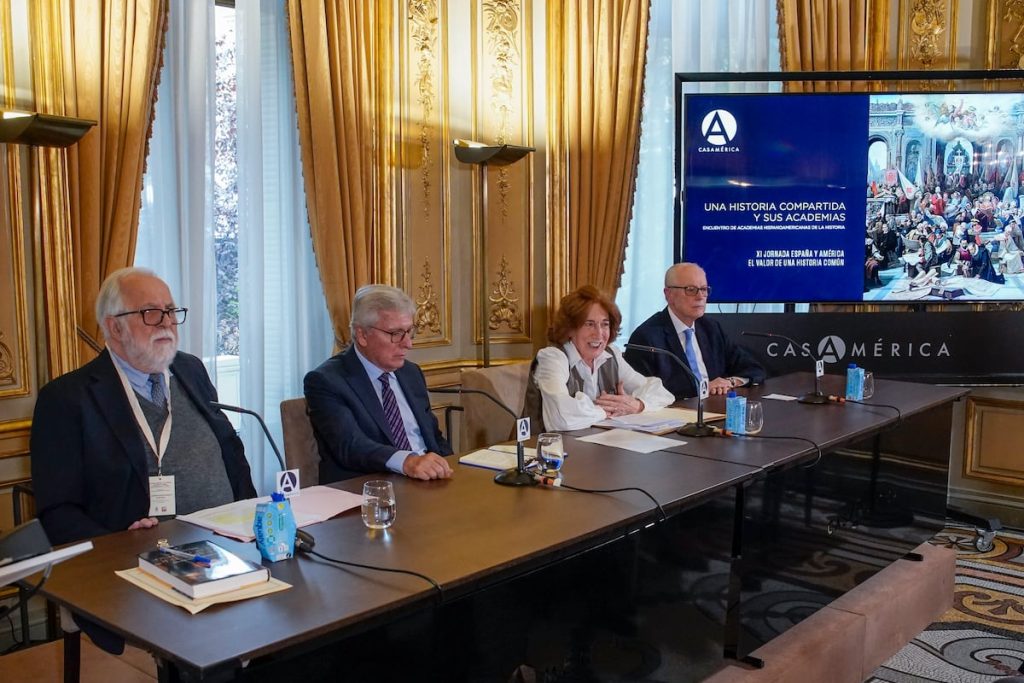Representatives from historical academies from 14 Spanish-speaking countries in Latin America gathered in Madrid to discuss the relationship between their nations. The controversy arose due to the exclusion of King Felipe VI from the inauguration of Mexican President Claudia Sheinbaum, which has strained relations between Spain and Mexico. The director of the Mexican Academy of History, Javier Garciadiego, described the Mexican perspective on the history of the region, emphasizing the preexisting indigenous cultures and the subsequent coexistence with the Spanish colonizers.
During the opening event in Trujillo, Spain, King Felipe VI avoided addressing Mexico’s request for an apology for the actions of Hernán Cortés during the conquest 500 years ago. He acknowledged conflicts but focused on the positive aspects of the shared history. Academics convened in Madrid for various discussions, and a joint declaration is expected to be issued in the coming days, aiming to avoid contentious issues. The meeting brought together representatives from history academies in Argentina, Bolivia, Chile, Colombia, Costa Rica, Guatemala, Mexico, Paraguay, Peru, Puerto Rico, the Dominican Republic, El Salvador, Uruguay, and Spain.
Garciadiego highlighted the mestizo nature of Mexican history, emphasizing the popular nature of the country’s independence wars. He acknowledged the significant administrative apparatus established by Spain, contributing to the country’s development and the widespread adoption of the Spanish language. The president of the Colombian Academy of History briefly mentioned his country’s request for Spain to return the Quimbaya treasure, acknowledging the shared history of both nations.
The event also addressed the decline of humanities education on both sides of the Atlantic, particularly in secondary schools, which impacts individuals during their formative years. The director of the Real Academy of History emphasized the importance of maintaining the study of history and humanities in education. The president of the Historical and Geographical Institute of Uruguay reflected on the historical legacy of independence movements in Latin America and the need for reconciliation and understanding between countries.
The representatives engaged in discussions about the historical narratives constructed in the 19th and 20th centuries, emphasizing the need to move away from divisive interpretations and towards a more inclusive and comprehensive understanding of history. The issues surrounding demands for historical apologies serve as a reminder of the complexities of historical relationships and the importance of approaching historical debates with nuance and understanding. The visit to an exhibition showcasing Christopher Columbus’s letters provided further context on the historical ties between Spain and Latin America.
The gathering of historical academies from Spanish-speaking countries in Madrid facilitated dialogue on shared histories, challenges in historical education, and the need for nuanced approaches to historical debates. The discussions highlighted the complexities of historical narratives, the impact of colonial legacies, and the importance of reconciliation and understanding between countries with intertwined histories. Moving forward, the emphasis lies on fostering constructive dialogue and promoting a more inclusive and comprehensive approach to historical studies.


